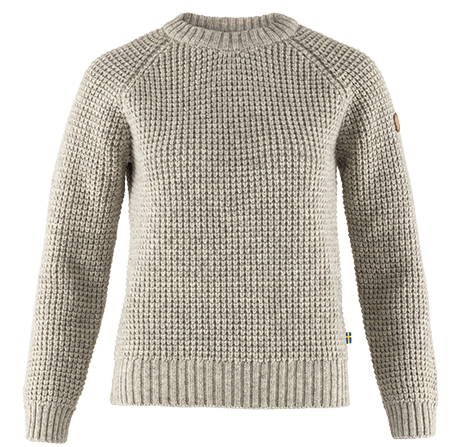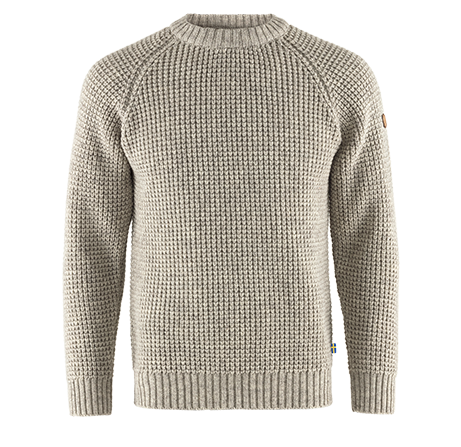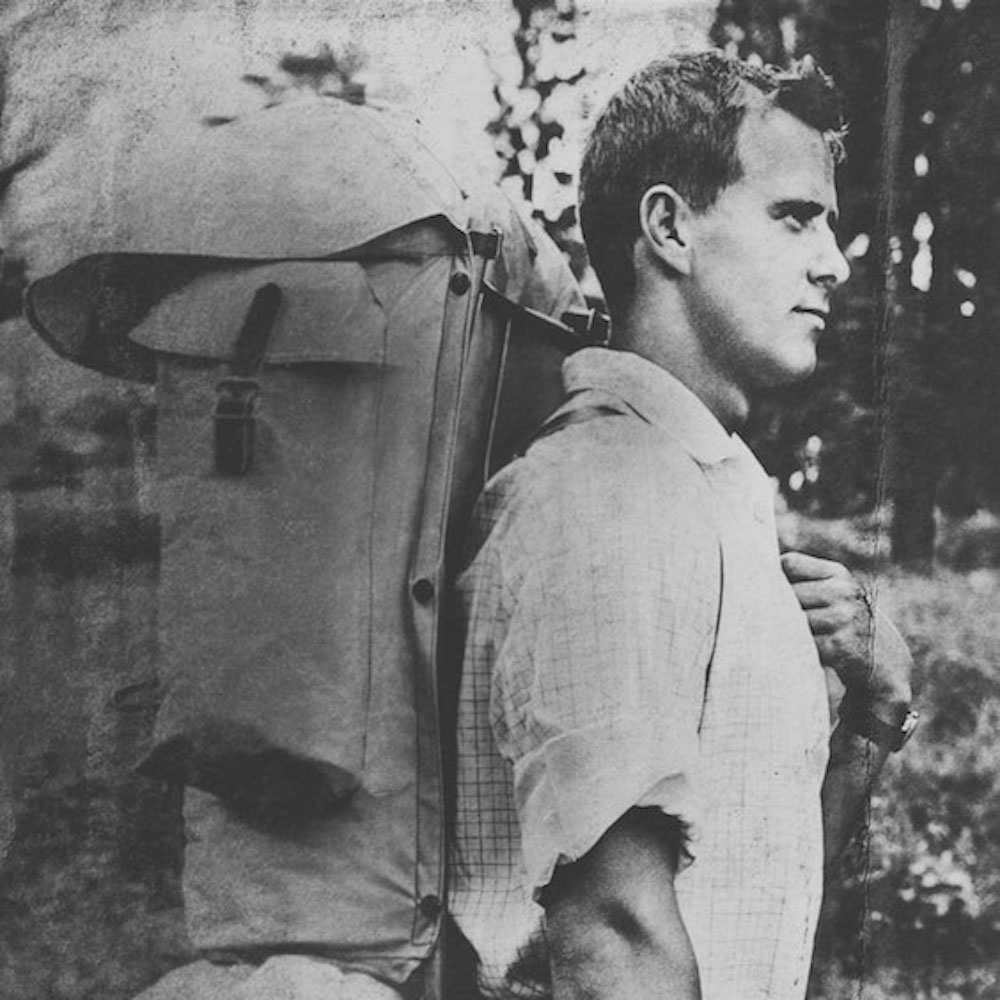Creating a sustainable future for wool
Meet Natasha Skott. Owner of Brattlandsgården farm and a Holistic Farmer, she is one of the people dedicated to creating a sustainable future for wool.
For me, farming is a way of life. It’s a lot of feelings. When it goes well, you are really happy, and when it doesn’t go well, it’s emotional. You feel you are alive. You feel alive when you work with nature.
Natasha Skott
Owner of Brattlandsgården and Holistic Farmer
We love wool, and since 2015 we have partnered with Natasha Skott at Brattlandsgården Farm to produce high-quality wool thanks to her holistic farming practices – and some happy, healthy sheep.
Starting as the Swedish Wool pilot project, the partnership was the first step of our ongoing program to reach 100% wool traceability.
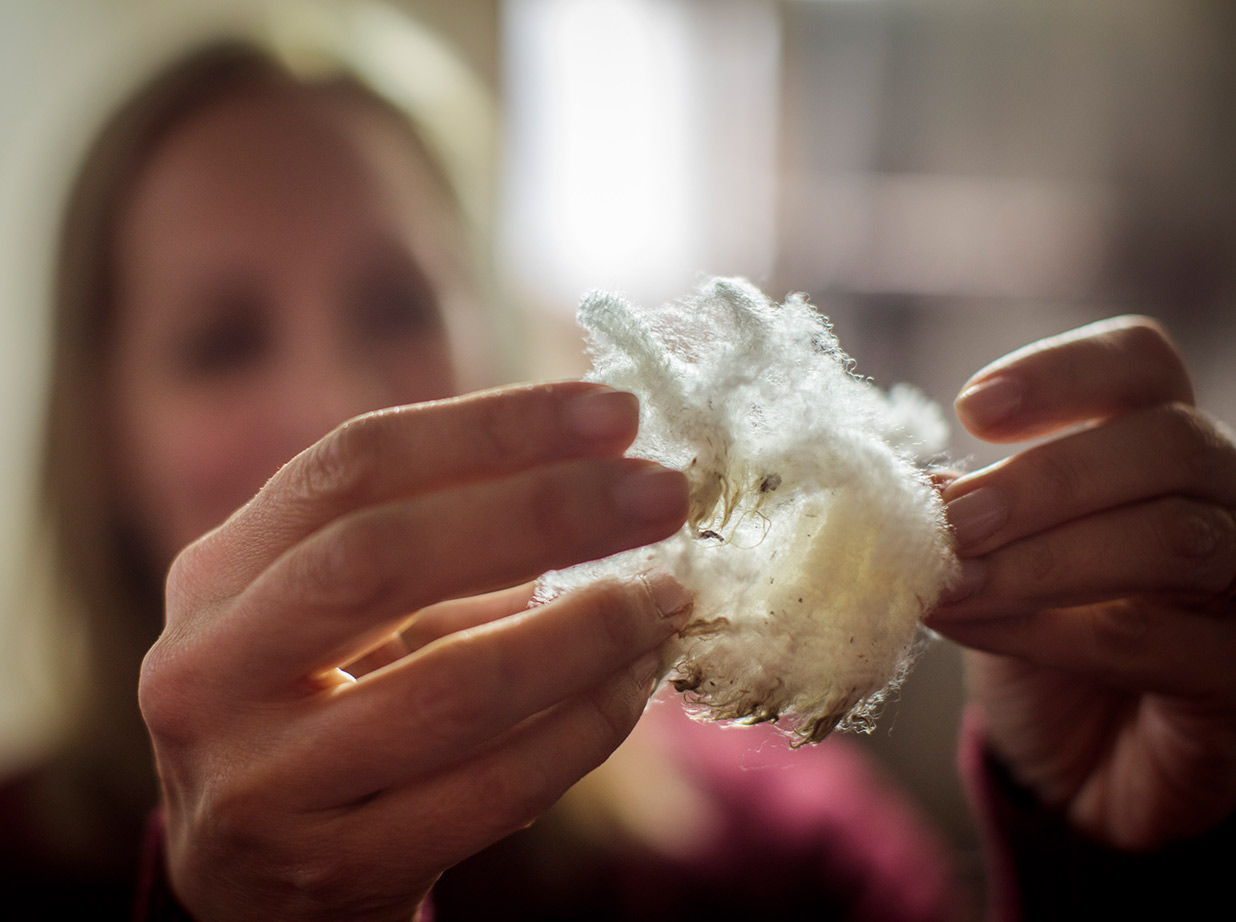
Today, it is an example of how we can do more for nature by working together. Natasha describes the relationship well:“Our partnership between a small farm and a big company proves that the two can work together. It’s one way of accomplishing things that I haven’t been able to do on my own. Fjällräven needs me as well. We have the small and the big, and we can do bigger things together. Which is nice.”
Read on to learn more about the farm, the sheep and our partnership with Natasha and Brattlandsgården.
The farm
“I think Brattlandsgården is really genuine. It’s not perfect, but it’s perfect in its imperfections. It gives people the feeling that things don’t need to be 100% perfect. It’s more about having a big heart and values you can stand by. More than just making money, it’s about making a good thing.”
Established in 1897, Brattlandsgården lies in the heart of the northern Swedish countryside; just eight kilometres away from the well-known ski village of Åre. Purchased by Natasha and her family in 2010, visitors will find a content group of animals, including pigs, chickens, geese, horses and of course, sheep.
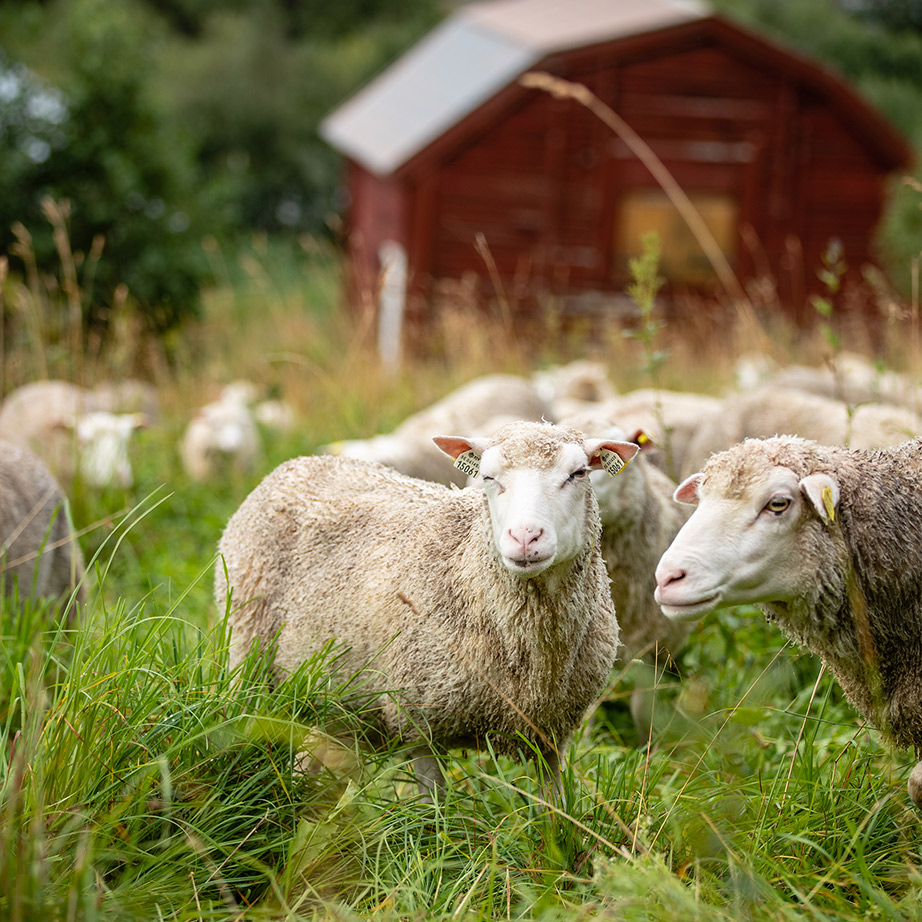
The farm is not especially large, but seven hectares is plenty for the flock. Rather than graze exclusively on Brattlandsgården property, they work their way across their neighbours’ lands as well. A community-driven approach that is quite common in Sweden, it ensures that no one’s land is over-grazed. This practice maintains the roots of the grass, which holds onto the water and minerals in the soil necessary for regrowth. After two to three days of grazing, the sheep move onto the next field, and the next, until they return 30 to 40 days later.
Such an environmental-minded approach to grazing is a reflection of the holistic method of farming Natasha applies at Brattlandsgården. Farms are complex places, and holistic farming ensures that the manager looks at the farm system as a whole, so that each part is in harmony. Natasha provides a helpful example:
“Holistic farming management is a process of planning that gives us the insights and tools needed to understand nature in all aspects. If I add something to the farm – say a chicken – I have to put the chicken into the whole picture of the farm and ask myself some questions. How will the chicken affect my work? How long will it take to care for this chicken? How much money will the chicken cost? How will the chicken affect the other people and animals on the farm? How will the chicken alter the farm?
Holistic farming is about the whole picture.”
The sheep
Holistic farming is also a decision-making tool that ensures each animal at Brattlandsgården contributes something positive to nature. Though Swedish farmers generally set a high bar for animal welfare, holistic farming proves that you can always do better. Natasha believes that you simply need to let the sheep show you the way:
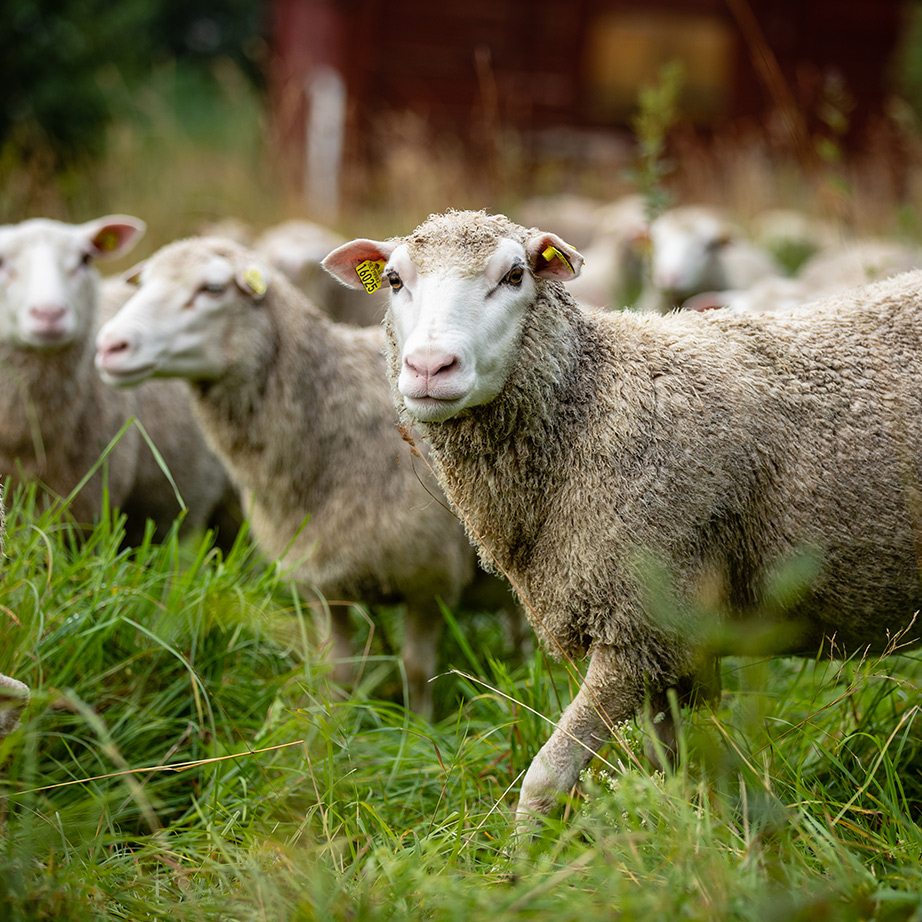
“You live with the sheep seasons. We want to demonstrate that there is a good way to bring up sheep, graze and run a farm; and that animals can contribute to making the environment better, while having a really good life”.
As such, the sheep of the Brattlandsgården flock are as happy, clean and productive as you can imagine they would be. Unlike corporate- or traditional-farmed sheep, they are on a grain-free diet. As Natasha says, “Their natural diet is grass, so that is what they eat.” They are also given free access to the outdoors all year long.
Yes, even in the winter.
The Brattlandsgården sheep are a Swedish breed: the Jämtlandsfår. They have a low-micron wool type, which is especially fine and therefore very warm and well-suited to harsh winter conditions. They do spend more time in the stable during winter, and Natasha ensures that they have plenty of fresh straw to snuggle into. Changed every two to three days, the fresh straw ensures that the winter wool her sheep produce is clean, high-quality and – most importantly – usable.
That is not always the case in the wool industry, which has had a waste problem. Natasha reports that before 2015, as much as 80% of wool produced in Sweden was being thrown away. Nowadays that number is being reduced. In a small way, the holistic farming practiced at Brattlandsgården is combatting a big problem by bringing awareness to the issue.
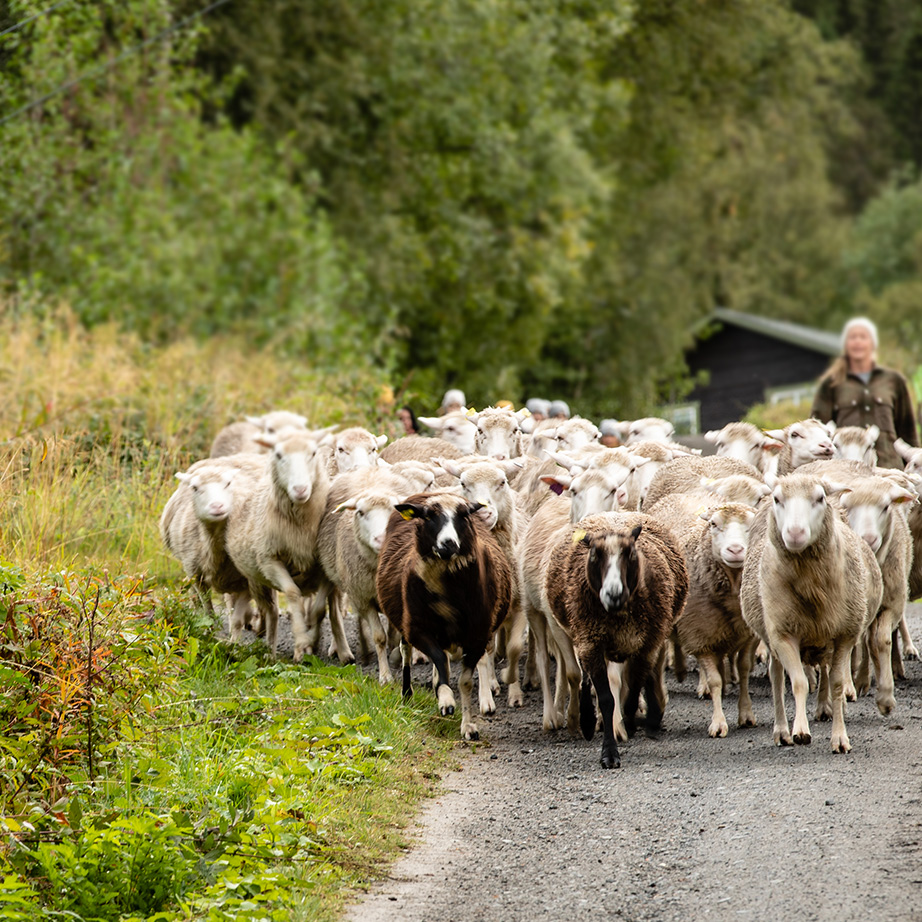
“The sheep are the heroes. They are the producers who make the wool so we can wear it. It’s their superpower. So, I think it is important to use 100% traceable wool. With it, you can find out how an animal lived. If they were well-kept and happy. It’s all about animal welfare with traceable wool.”
The partnership
Now in its fifth year, the partnership between Brattlandsgården and Fjällräven came from a common vision to improve wool traceability. It started with the Swedish Wool pilot project, and after a lot of hard work, on-the-spot learning and dedicated creative work by designers, it resulted in the Brattlands Sweater No 1.
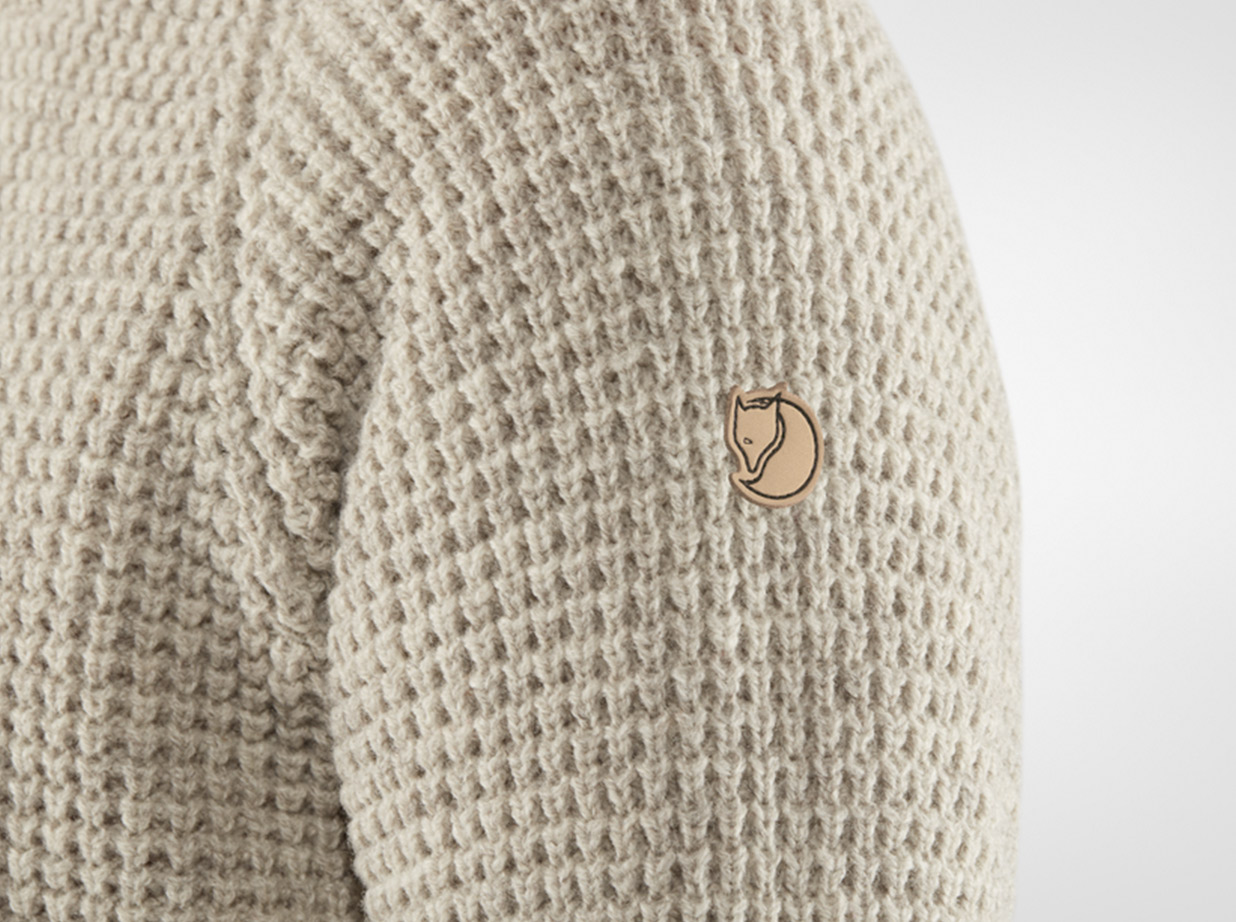
Today, Brattlandsgården remains a dedicated wool supplier for Fjällräven, and the raw material produced by Natasha’s flock is particularly desirable because it is so fine, clean, warm and lustrous. The continuation of the partnership is a positive step for Natasha, who can now achieve things at Brattlandsgården that would not be typical at a small farm. In the end however, the partnership is a success due to the shared values between the parties, including longevity, quality, durability and sustainability.
“Everything goes so fast these days, but Fjällräven is a good partner because of their long-term thinking. You don’t do anything overnight. Brands who have the guts and opportunity to do things well-thought through and in a sustainable way are so valuable.
The relationship we have with Fjällräven is really good because I can stand behind their values. It feels good in my heart.”
Brattlands Products
Sweaters
More Stories
Sustainability
